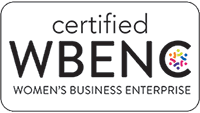Well-being is often associated with mental and physical health, but well-being is much more holistic than just those two categories. There are many aspects of wellness, including mental, physical, financial, and occupational wellness. Companies tend to focus on mental and physical wellness for their employees, and often overlook occupational wellness and personal development. Occupational wellness is ensuring employees work is meaningful, enjoyable, and aligns with their personal values. Having a balance between work and leisure is important in achieving occupational wellness. When employers invest in their employee’s occupational wellness and personal development, they can improve the talent, health, and retention of their workforce.
Personal Development
Personal development opportunities at work allow employees to develop various interests and skills and encourages them to become their best selves. Employees in today’s workforce are specifically looking for employers to provide opportunities for professional development and career growth. When employees accelerate professionally and intellectually, they are happier, more engaged, and more passionate about their work. Investing in your people is an investment in your business.
5 Tips to Improve Personal Development at Work
Not all personal development opportunities are created equal. Here are 5 tips for offering personal development opportunities that can lead to significant growth for employees:
1. Personalize it
Personal growth for employees is going to vary for each individual. Take the time to find out how each employee wants to grow in their career and with the company, and tailor your approach to best fit their goals.
2. Encourage a culture of curiosity and learning
Personal development is only effective when employees have the desire to grow. By incorporating curiosity into your company’s culture, employees will be more eager to learn and improve their skills.
3. Try informal training
A structured, formal typical classroom environment isn’t always the best for everyone. Professional development can come in all forms, it could be a book club or an informal group discussion to help employees better themselves.
4. Don’t forget about non-work skills
Growing is so much more than improving in ways that are immediate and obvious. Personal growth might involve anything from learning to play an instrument, to starting a cooking class, or volunteering with an important social cause. Skills don’t always have to be directly related to the job that the employee is performing to help them in their growth journey. Companies should provide opportunities for employees to grow in these ways, as it not only helps employees’ professional development, it also signals that employers truly care about the health and wellness of their workforce. These activities also help employees feel better in general, which can help them feel happier and more content at work.
5. Don’t forget about soft skills
When we think about training and growth, people tend to think of hard skills first. Whether it’s learning a new technology, software, or tool, hard skills are easier to measure improvement upon from a manager’s perspective. However, the soft skills and interpersonal skills are just as important to focus on. Skills such as the ability to manage your emotions, communication skills, leadership skills, being able to adapt to changing situations, and problem solving are critical to being successful in any workplace. Make sure you offer opportunities to work on these skills in addition to the technical skills that are needed to perform an employee’s job.
In addition to the holistic benefits from improving occupational wellness, personal development opportunities provide employees the chance to achieve their true potential and become their best selves. They will be more confident, motivated, and productive than ever.
Sign up for our newsletter to keep up with all things OnSite Wellness:
-1.png?width=300&name=1127895_OSW%20Tagline%20Logo_081021%20(1)-1.png)



